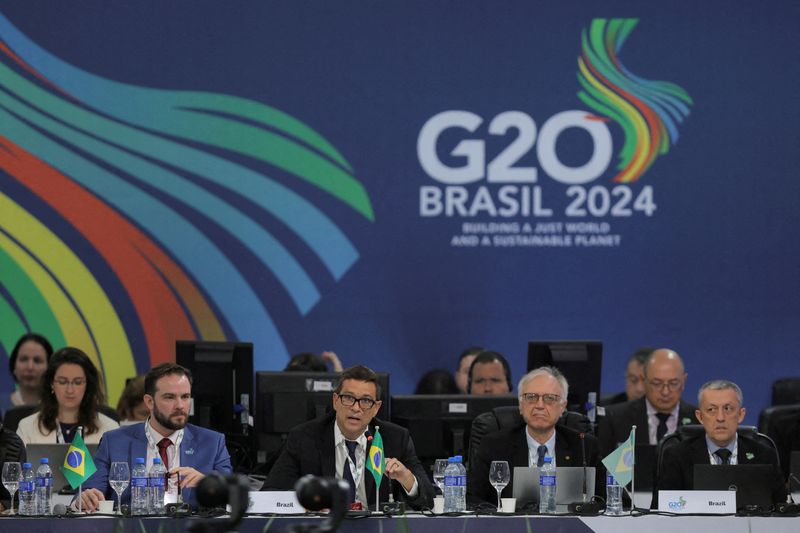Select Language

By Marcela Ayres and David Lawder
RIO DE JANEIRO (Reuters) - G20 finance leaders meeting in Brazil are preparing a joint statement for Thursday in support of progressive taxation that will stop short of endorsing the hosts' proposal for a global "billionaire tax," two G20 officials told Reuters.
Brazil's presidency of the Group of 20 major economies this year has drummed up initial support from some countries for a joint effort to tax ultra-high-net-worth individuals, although debate has been preliminary.
France, Spain, Colombia, Belgium and the African Union have backed the idea, along with South Africa, which will assume the G20 presidency next year. However, the idea has hit high-profile resistance, including from U.S. Treasury Secretary Janet Yellen.
Sources at the German finance ministry, which came out against the idea in April, said that a tax on the super-rich was off the table at this week's G20 meetings. Tax discussions would focus on other ideas, such as combating tax avoidance and wealth concealment, the sources said.
One of the G20 officials familiar with talks, who requested anonymity to discuss ongoing negotiations, said Thursday's joint statement is expected to include a call for cooperation to reduce tax evasion by the super-rich through greater exchange of information and best practices.
A broader G20 joint communique is expected on Friday, when finance ministers and central bankers conclude this week's meetings in Rio de Janeiro.
Despite skepticism, the G20 discussions of a global billionaire tax have garnered praise from former world leaders including 19 members of the Club de Madrid, a forum of more than 100 former presidents and prime ministers.
At a seminar in Brasilia last month, officials discussed the proposal from the independent EU Tax Observatory to levy a 2% wealth tax on fortunes over $1 billion, raising estimated revenue of up to $250 billion annually from 3,000 individuals.

